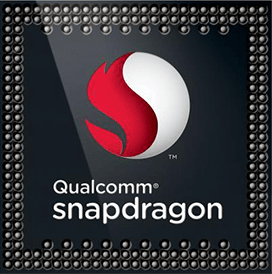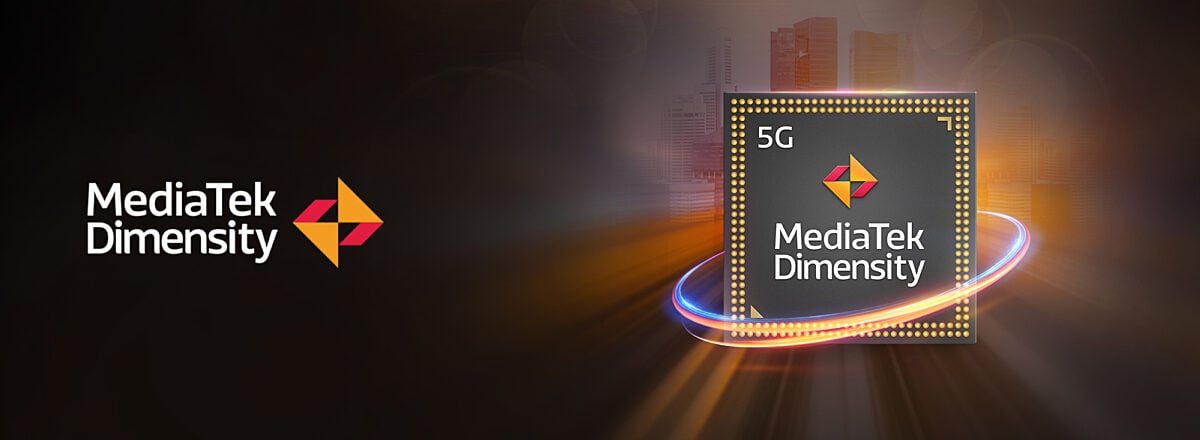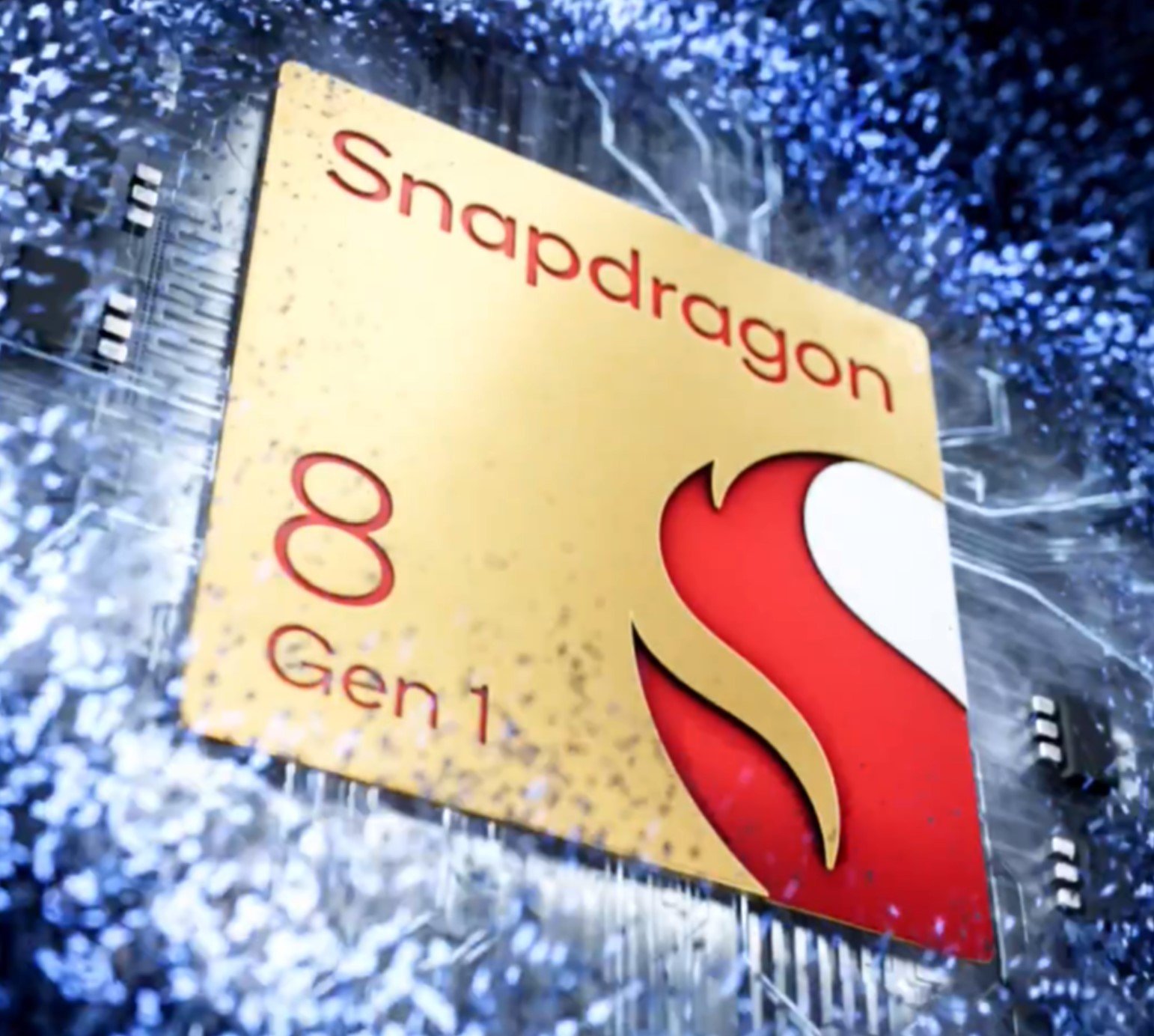
Qualcomm Snapdragon 8 Gen 1 Benchmark, Test and specs
Last updated:
The Qualcomm Snapdragon 8 Gen 1 has 8 CPU cores and can process 8 threads at the same time. The processor was presented in Q1/2022 and is based on the 1. Generation of the Qualcomm Snapdragon series. In the Geekbench 5 benchmark, the Qualcomm Snapdragon 8 Gen 1 achieved a result of 1,229 points (single-core) or 3,722 points (multi-core).

| Name: | Qualcomm Snapdragon 8 Gen 1 |
|---|---|
| Family: | Qualcomm Snapdragon (102) |
| CPU group: | Qualcomm Snapdragon 7/8 Gen 1 (3) |
| Architecture: | Cortex-X2 / -A710 / -A510 |
| Segment: | Mobile |
| Generation: | 1 |
| Predecessor: | Qualcomm Snapdragon 888 |
| Successor: | Qualcomm Snapdragon 8 Gen 2 |
CPU Cores and Base Frequency
The Qualcomm Snapdragon 8 Gen 1 has 8 cores. The clock frequency of the Qualcomm Snapdragon 8 Gen 1 is 3.00 GHz. An initial performance assessment can be made using the number of CPU cores.
| CPU Cores / Threads: | 8 / 8 |
|---|---|
| Core architecture: | hybrid (Prime / big.LITTLE) |
| A-Core: | 1x Kryo Prime |
| B-Core: | 3x Kryo Gold |
| C-Core: | 4x Kryo Silver |
| Hyperthreading / SMT: | No |
|---|---|
| Overclocking: | No |
| A-Core Frequency: | 3.00 GHz |
| B-Core Frequency: | 2.50 GHz |
| C-Core Frequency: | 1.80 GHz |
Artificial Intelligence and Machine Learning
Processors with the support of artificial intelligence (AI) and machine learning (ML) can process many calculations, especially audio, image and video processing, much faster than classic processors. Algorithms for ML improve their performance the more data they have collected via software. ML tasks can be processed up to 10,000 times faster than with a classic processor.
| AI hardware: | Qualcomm AI engine |
|---|---|
| AI specifications: | Hexagon 780 @ 26 TOPS |
Internal Graphics
The Qualcomm Snapdragon 8 Gen 1 has an integrated graphics that the system can use to efficiently play back videos. The Qualcomm Snapdragon 8 Gen 1 has the Qualcomm Adreno 730 installed, which has -- streaming multiprocessors (-- shaders).
| GPU name: | Qualcomm Adreno 730 |
|---|---|
| GPU frequency: | 0.82 GHz |
| GPU (Turbo): | No turbo |
| Compute units: | -- |
| Shader: | -- |
| Hardware Raytracing: | No |
| Release date: | Q1/2022 |
| Max. displays: | 0 |
|---|---|
| Generation: | 7 |
| Direct X: | 12.1 |
| Technology: | 4 nm |
| Max. GPU Memory: | 8 GB |
| Frame Generation: | No |
Hardware codec support
Processors with integrated graphics can process video codecs faster. Support for modern codecs can significantly increase system efficiency during video playback.
| h265 / HEVC (8 bit): | Decode / Encode |
|---|---|
| h265 / HEVC (10 bit): | Decode / Encode |
| h264: | Decode / Encode |
| VP8: | Decode / Encode |
| VP9: | Decode / Encode |
| AV1: | No |
|---|---|
| AVC: | Decode |
| VC-1: | Decode |
| JPEG: | Decode / Encode |
Memory & PCIeThe Qualcomm Snapdragon 8 Gen 1 supports a maximum of 16 GB memory. Depending on the mainboard, the processor can use a maximum of 4 (Quad Channel) memory channels. This results in a maximum bandwidth of the main memory of 51.2 GB/s. |
|
| Memory type: | Memory bandwidth: |
|---|---|
| LPDDR5-6400 | 51.2 GB/s |
| Max. Memory: | 16 GB |
| Memory channels: | 4 (Quad Channel) |
| ECC: | No |
| PCIe: | |
| PCIe Bandwidth: | -- |
Thermal ManagementThe Qualcomm Snapdragon 8 Gen 1 has a TDP of . Based on the TDP, the system manufacturer can and must adapt the cooling solution to the processor. |
|
|---|---|
| TDP (PL1 / PBP): | |
| TDP (PL2): | -- |
| TDP up: | -- |
| TDP down: | -- |
| Tjunction max.: | -- |
Technical details
Modern production reduces the waste heat of a processor and increases its efficiency. The Qualcomm Snapdragon 8 Gen 1 is made in 4 nm and has 8.00 MB cache.
| Technology: | 4 nm |
|---|---|
| Chip design: | Chiplet |
| Socket: | -- |
| L2-Cache: | 2.00 MB |
| L3-Cache: | 6.00 MB |
| AES-NI: | No |
| Operating systems: | Android, Windows 10 (ARM) |
| Virtualization: | None |
|---|---|
| Instruction set (ISA): | Armv9-A (64 bit) |
| ISA extensions: | -- |
| Release date: | Q1/2022 |
| Release price: | -- |
| Part Number: | SM8450 |
| Documents: | Technical data sheet |
Rate this processor
Benchmark results

The benchmark results for the Qualcomm Snapdragon 8 Gen 1 have been carefully checked by us. We only publish benchmark results that have been created by us or that have been submitted by a visitor and then checked by a team member. All results are based on and fullfill our benchmark guidelines.
Geekbench 5, 64bit (Single-Core)
Geekbench 5 is a cross plattform benchmark that heavily uses the systems memory. A fast memory will push the result a lot. The single-core test only uses one CPU core, the amount of cores or hyperthreading ability doesn't count.

|
Intel Xeon Gold 6346
16C 32T @ 3.60 GHz |
||

|
AMD Ryzen 5 5625C
6C 12T @ 4.30 GHz |
||

|
Intel Xeon W-2155
10C 20T @ 4.50 GHz |
||
|
|
Qualcomm Snapdragon 8 Gen 1
8C 8T @ 3.00 GHz |
||

|
Intel Xeon Gold 5320
26C 52T @ 3.40 GHz |
||

|
Intel Core i7-7700K
4C 8T @ 4.50 GHz |
||

|
Qualcomm Snapdragon 8+ Gen 1
8C 8T @ 3.20 GHz |
||
Geekbench 5, 64bit (Multi-Core)
Geekbench 5 is a cross plattform benchmark that heavily uses the systems memory. A fast memory will push the result a lot. The multi-core test involves all CPU cores and taks a big advantage of hyperthreading.

|
Intel Core i5-9500T
6C 6T @ 3.20 GHz |
||

|
Intel Xeon E3-1225 v6
4C 4T @ 3.40 GHz |
||

|
Intel Core i5-4690K
4C 4T @ 3.70 GHz |
||
|
|
Qualcomm Snapdragon 8 Gen 1
8C 8T @ 3.00 GHz |
||

|
Intel Core i7-4770K
4C 8T @ 3.70 GHz |
||

|
MediaTek Dimensity 8200
8C 8T @ 3.10 GHz |
||

|
AMD Ryzen 3 5400U
4C 8T @ 3.80 GHz |
||
Geekbench 6 (Single-Core)
Geekbench 6 is a benchmark for modern computers, notebooks and smartphones. What is new is an optimized utilization of newer CPU architectures, e.g. based on the big.LITTLE concept and combining CPU cores of different sizes. The single-core benchmark only evaluates the performance of the fastest CPU core, the number of CPU cores in a processor is irrelevant here.

|
AMD EPYC 7402P
24C 48T @ 3.35 GHz |
||

|
AMD Ryzen 3 7320U
4C 8T @ 4.10 GHz |
||

|
Intel Xeon E3-1220 v5
4C 4T @ 3.50 GHz |
||
|
|
Qualcomm Snapdragon 8 Gen 1
8C 8T @ 3.00 GHz |
||

|
AMD EPYC 7302P
16C 32T @ 3.30 GHz |
||

|
Intel Core i5-8400
6C 6T @ 4.00 GHz |
||

|
AMD EPYC 7702
64C 128T @ 3.35 GHz |
||
Geekbench 6 (Multi-Core)
Geekbench 6 is a benchmark for modern computers, notebooks and smartphones. What is new is an optimized utilization of newer CPU architectures, e.g. based on the big.LITTLE concept and combining CPU cores of different sizes. The multi-core benchmark evaluates the performance of all of the processor's CPU cores. Virtual thread improvements such as AMD SMT or Intel's Hyper-Threading have a positive impact on the benchmark result.

|
Intel Core i7-4710HQ
4C 8T @ 2.50 GHz |
||

|
Intel Processor N200
4C 4T @ 3.40 GHz |
||

|
Intel Core i7-4770T
4C 8T @ 3.20 GHz |
||
|
|
Qualcomm Snapdragon 8 Gen 1
8C 8T @ 3.00 GHz |
||

|
Intel Core i7-3960X
6C 12T @ 3.90 GHz |
||

|
Intel Xeon D-2123IT
4C 8T @ 2.40 GHz |
||

|
Intel Core i3-9100T
4C 4T @ 3.40 GHz |
||
iGPU - FP32 Performance (Single-precision GFLOPS)
The theoretical computing performance of the internal graphics unit of the processor with simple accuracy (32 bit) in GFLOPS. GFLOPS indicates how many billion floating point operations the iGPU can perform per second.

|
Intel Core i7-4750HQ
Intel Iris Pro Graphics 5200 @ 1.20 GHz |
||

|
Intel Core i7-4850HQ
Intel Iris Pro Graphics 5200 @ 1.20 GHz |
||

|
Apple A14 Bionic
Apple A14 @ 1.46 GHz |
||
|
|
Qualcomm Snapdragon 8 Gen 1
Qualcomm Adreno 730 @ 0.82 GHz |
||

|
Intel Core i7-12650HX
Intel UHD Graphics 770 @ 1.45 GHz |
||

|
Intel Core i7-12800HX
Intel UHD Graphics 770 @ 1.45 GHz |
||

|
Intel Core i5-11500B
Intel UHD Graphics 11th Gen (32 EU) @ 1.45 GHz |
||
AnTuTu 9 Benchmark
The AnTuTu 9 benchmark is very well suited to measuring the performance of a smartphone. AnTuTu 9 is quite heavy on 3D graphics and can now also use the "Metal" graphics interface. In AnTuTu, memory and UX (user experience) are also tested by simulating browser and app usage. AnTuTu version 9 can compare any ARM CPU running on Android or iOS. Devices may not be directly comparable when benchmarked on different operating systems.
In the AnTuTu 9 benchmark, the single-core performance of a processor is only slightly weighted. The rating is made up of the multi-core performance of the processor, the speed of the working memory, and the performance of the internal graphics.
In the AnTuTu 9 benchmark, the single-core performance of a processor is only slightly weighted. The rating is made up of the multi-core performance of the processor, the speed of the working memory, and the performance of the internal graphics.

|
Qualcomm Snapdragon 8+ Gen 1
8C 8T @ 3.20 GHz |
||

|
MediaTek Dimensity 9000
8C 8T @ 3.05 GHz |
||

|
Qualcomm Snapdragon 7+ Gen 2
8C 8T @ 2.91 GHz |
||
|
|
Qualcomm Snapdragon 8 Gen 1
8C 8T @ 3.00 GHz |
||

|
Apple A16 Bionic
6C 6T @ 3.46 GHz |
||

|
Samsung Exynos 2200
8C 8T @ 2.80 GHz |
||

|
Google Tensor G3
8C 8T @ 2.91 GHz |
||
Estimated results for PassMark CPU Mark
Some of the CPUs listed below have been benchmarked by CPU-monkey. However the majority of CPUs have not been tested and the results have been estimated by a CPU-monkey’s secret proprietary formula. As such they do not accurately reflect the actual Passmark CPU mark values and are not endorsed by PassMark Software Pty Ltd.

|
Intel Xeon E3-1231 v3
4C 8T @ 3.80 GHz |
||

|
Intel Xeon E3-1245 v3
4C 8T @ 3.80 GHz |
||

|
Intel Core i7-4940MX
4C 8T @ 3.90 GHz |
||
|
|
Qualcomm Snapdragon 8 Gen 1
8C 8T @ 3.00 GHz |
||

|
AMD Ryzen 5 PRO 3500U
4C 8T @ 3.00 GHz |
||

|
AMD Ryzen 5 3500U
4C 8T @ 3.00 GHz |
||

|
Intel Core i7-6820EQ
4C 8T @ 2.80 GHz |
||
Performance for Artificial Intelligence (AI) and Machine Learning (ML)
Processors with the support of artificial intelligence (AI) and machine learning (ML) can process many calculations, especially audio, image and video processing, much faster than classic processors. The performance is given in the number (trillions) of arithmetic operations per second (TOPS).

|
Qualcomm Snapdragon 888+
8C 8T @ 3.00 GHz |
||

|
Apple M2 Ultra (60-GPU)
24C 24T @ 0.66 GHz |
||

|
Apple M2 Ultra (76-GPU)
24C 24T @ 0.66 GHz |
||
|
|
Qualcomm Snapdragon 8 Gen 1
8C 8T @ 3.00 GHz |
||

|
Qualcomm Snapdragon 8 Gen 2 for Galaxy
8C 8T @ 3.36 GHz |
||

|
Qualcomm Snapdragon 8 Gen 2
8C 8T @ 3.36 GHz |
||

|
Qualcomm Snapdragon 888
8C 8T @ 2.84 GHz |
||
Benchmarks

Geekbench 5 (SC)
2,488 entries
2,488 entries

Geekbench 5 (MC)
2,461 entries
2,461 entries

Geekbench 6 (SC)
1,755 entries
1,755 entries

Geekbench 6 (MC)
1,703 entries
1,703 entries

FP32 SP (iGPU)
2,042 entries
2,042 entries

AnTuTu 9 Benchmark
90 entries
90 entries

PassMark CPU-Mark
2,392 entries
2,392 entries

AI / ML Performance
119 entries
119 entries
News and articles for the Qualcomm Snapdragon 8 Gen 1

MediaTek Dimensity 9000+ vs Apple A16 and Snapdragon 8+ Gen 1
Posted by Stefan on 2022-09-22
With the Dimensity 9000+, Mediatek presents the latest of its smartphone chips. The successor to the Mediatek Dimensity 9000 achieves higher CPU and GPU clock frequencies thanks to better binning. The CPU clock of the prime core (A core) increases from 3.0 to 3.2 GHz. And the ARM Mali-G710 MP10 GPU can now clock at 0.9 GHz (previously 0.85 GHz).
Both are a good improvement over the Dimensity 9000 in theory but the increase in performance should not usually be noticeable in practice. In the end, the overall performance of the Mediatek Dimensity 9000+ is impressive: Qualcomm Snapdragon 8+ Gen 1 is beaten in Geekbench 5 in both the single-core and multi-core benchmarks.
Both are a good improvement over the Dimensity 9000 in theory but the increase in performance should not usually be noticeable in practice. In the end, the overall performance of the Mediatek Dimensity 9000+ is impressive: Qualcomm Snapdragon 8+ Gen 1 is beaten in Geekbench 5 in both the single-core and multi-core benchmarks.

Qualcomm Snapdragon 8+ Gen 1 is more powerful and efficient
Posted by Stefan on 2022-07-11
Qualcomm is changing the contract manufacturer from Samsung to TSMC for the Snapdragon 8+ Gen 1. By switching to the TSMC 4 nm manufacturing process, the Snapdragon 8+ Gen 1 is not only 10 percent faster but also 15 percent more efficient than its predecessor. This makes Qualcomm's TOP SoC one of the fastest smartphone chips on the market.
Description of the processor
The Qualcomm Snapdragon 8 Gen 1 is a processor that was released in the first quarter of 2022 and is mainly used in top smartphones. The following smartphones, among others, are equipped with the processor: Samsung Galaxy Z Flip4, Huawei Mate 50, Motorola X30 or the ASUS Zenfone 9. It is based on the chiplet design and on the ARMv9-A64 (64 bit) instruction set.The processor consists of 8 cores composed of a hybrid Prime / big-LITTLE core architecture. In detail, there is a prime processor core (codename Kryo Prime) clocking at 3.00 gigahertz, 3 high-performance cores (Kryo Gold) clocking at 2.50 gigahertz and 4 efficiency cores (codename Kryo Silver) clocking at 1.80 gigahertz. The cores do not support hyperthreading and the processor cannot be overclocked either. The Qualcomm Snapdragon 8 Gen 1 has a 2.00 megabyte level 2 cache and a 6.00 megabyte level 3 cache.
The Qualcomm Snapdragon 8 Gen 1 scores 1229 single-core points and 3828 multi-core points in the Geekbench 5 benchmark.
The in-house Qualcomm Adreno 730 is used as the internal graphics unit. This iGPU clocks at 0.82 gigahertz and was released together with the processor in the first quarter of 2022. The iGPU achieves a FP32 (single precision) computing power of 2236 Gigaflops, which is significantly faster than the iGPU of the Apple Bionic A15 with 5 GPUs (1500 GigaFLOPS), which was released in the third quarter of 2021. The graphics unit supports the decoding of almost all video codecs in hardware, only the AV1 codec is not yet supported.
The Qualcomm Snapdragon 8 Gen 1 has 4 memory channels that control 16 gigabytes of LPDDR5-6400 RAM.
The Qualcomm Snapdragon 8 Gen 1 can run Android or Windows 10 (ARM version) as the operating system.
Popular comparisons
back to index




